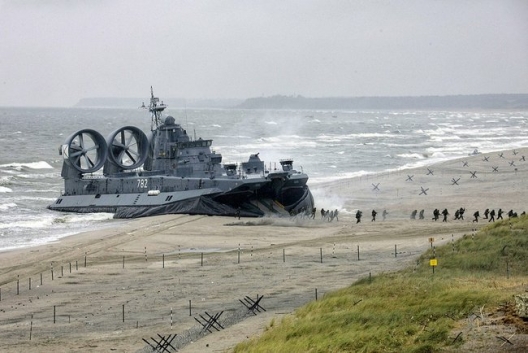 A joint military exercise of Russia and Belarusia code named Zapad 2013 (West 2013) will be held on September 20-26. . . .[C]oncerns are heightened by the decision of Zapad-2013 participants to not allow NATO representatives to attend the exercise.
A joint military exercise of Russia and Belarusia code named Zapad 2013 (West 2013) will be held on September 20-26. . . .[C]oncerns are heightened by the decision of Zapad-2013 participants to not allow NATO representatives to attend the exercise.
Latvia’s Minister of Defence Artis Pabriks said on July 19: “We want Russia to invite us to take part in the exercises and we’ll be able to observe them and give an assessment”. The minister believes that the exercises would imitate the attack on the Baltic States. “I don’t believe that such scenario will differ from the previous one (Zapad-2009), although it has its nuances. In any case they will be aimed at our region,” Pabriks said. . . .
Similar concerns are shared by Lithuanian officials. According to the 2012 report of the Second Investigation Department under Lithuania’s Ministry of National Defence, there is a possibility that not only defensive but also offensive operations may take place at the Zapad-2013 drills, as well as intentional and non-intentional violations of the Lithuania’s land and air borders. Military activity in the Western direction is treated by Lithuania’s military Russia’s demonstration of military power.
Poland’s military representatives shares Baltic concerns over the Russian-Belarusian military drills and the overall geopolitical situation in the region. General Roman Polko, former commander of Poland’s special operations unit GROM and deputy head of the country’s Bureau for National Security told Polsat TV on June 10 that Russia threatens both Poland and Belarus and that Zapad-2013 will have an “aggressive character”towards neighbouring NATO states. Earlier this year Poland’s Defence Minister Tomasz Simoniak stated that Warsaw would prefer a return to “good old NATO” and the US decision to cancel the fourth phase of the European missile defence shield reflected Washington’s “hesitation” In Europe.
Image: Zapad 2009 exercise. (photo: Wikimedia/kremlin.ru)
